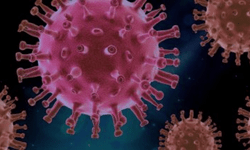Should the Covid vaccines be set free in the world, so that everyone can gain immunity? Few would argue that’s a bad idea, since more variants may arise in under-vaccinated populations, those variants will undoubtedly spread to us, and those variants may be resistant to our vaccines.
But what about the rights of the creative people and organizations that created the vaccines?
Gary Locke, Andrew Ianacu and David Kappos recently addressed these issues in a white paper. Andrew Ianacu was head of the USPTO during the Trump administration. David Kappos was head of the USPTO during the Obama administration. Gary Locke was ambassador to China during the Obama administration.
The white paper points that in the absence of effective action by the West to distribute vaccines around the world. China is stepping in and is widely distributing its less-effective vaccine in return for concessions from the receiving countries. For example, to receive the Chinese vaccine, Brazil reversed its exclusion of Huawei from Brazil’s 5G buildout. For access to the Chinese vaccine, China pressured Paraguay to cut diplomatic ties with Taiwan and Algeria agreed not to criticize China for Hong Kong rights abuses.
India and South Africa are proposing that countries strip patent, copyright and trademark protection from the vaccines. The Biden administration supports the proposal. The white paper points out that removing patent protections would not increase vaccine production, since all of the suitable facilities around the world are already producing the vaccine as quickly as possible. Stripping patent protection would instead award an extremely valuable technology that has many applications, developed partially at taxpayer expense, to countries like India and South Africa that have huge generic drug industries. The authors argue that stripping the vaccines of patent protection would not help vaccine production or distribution but would instead harm US innovators and lose an outstanding opportunity to create international good will.
The authors acknowledge that the US has not done a good job of distributing US vaccines to other countries, even though it has committed to providing 1.1 billion doses to developing countries by year end and has already provided 160 million doses. The authors argue that the issue is not patents, but is instead logistical – the availability of raw materials, trade barriers and supply chain tracking are much more important to the distribution of the vaccines than are patents.
The bottom line? Throw out that bathwater, but keep the baby.
— Robert Yarbrough, Esq.


